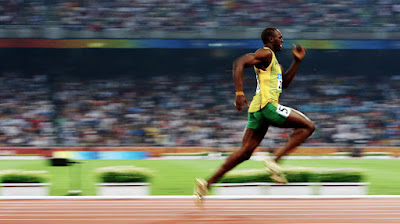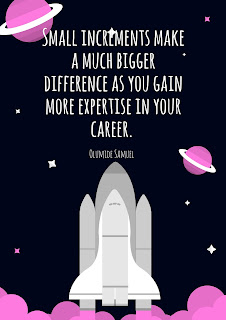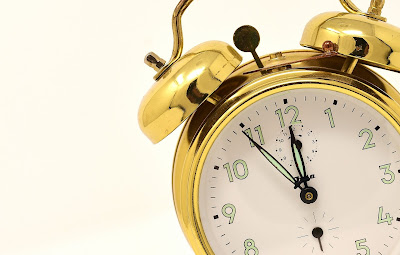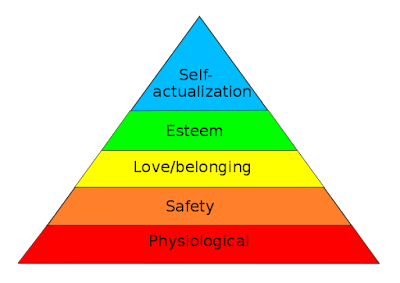Can 0.08 seconds make you the greatest? (The Law of Ascending Returns)
In 2016 Olympic games, Usain Bolt was participating in his third consecutive Olympic games. He had won a gold medal in the 100 meters race in the previous two Olympic games. Will he win for the third time?
They got set for the 100 meters final. And the gun sounded. The 8 athletes raced. 1 second, 2 seconds, 3 seconds,... Justin Gatlin has got this. It seemed Usain Bolt was going to lose out on gold this time.
Oh wait. Like lightning, Bolt rocketed, caught up and got to the finish line. First. Another gold.
Usain Bolt won the 100m in a time of 9.81 seconds. The last man ran it at a time of 10.06s. That’s a difference of 0.26s. And for the first time in Olympic games history, 6 athletes ran the 100m in less than 10 seconds.
There was a difference of 0.15s between Bolt and the athlete who got 6th. That’s very close. Now let me ask you, do you know the athlete who got 6th? Okay, do you know the person who got 3rd?
Are these guys far worse than Usain Bolt that we seem to forget them? No. The athlete who came second to Bolt, Justin Gatlin, ran at a time of 9.89s which is 0.08s to Bolt. Pretty close right? But Usain got most of the publicity and rewards.
Does 10 to 20 and 9990 to 10000 have the same difference?
In mathematics, the differences are seen as the same but the percentage increase is different. In real life, the percentage increase tells us a different story. This is the story of context.
When you make $10 and it’s increased to $20, you’re ecstatic because that is a 100% increase. When you make $9990 and it’s increased to $10,000, you don’t even think about it twice.
This is the law of diminishing returns.
According to research by Clingingsmith, negative emotions reduces as money increases. But only to a point. When you continue to gain money till you reach a point, the gain fails to have the same effect on negative emotions as it had earlier.
Does the law of diminishing returns affect your expertise at work? Is there a point where little increments in productivity won’t make much difference?
The little increments as an expert are as important as when you’re a novice. In fact, little increments for an expert could be as important as big improvements for a novice.
Because there is a smaller room for improvement for an expert. This is the law of diminishing returns in reverse.
The law of ascending returns of effort
This can be called the law of ascending returns. Small increments make a much bigger difference as you gain more expertise in your career.
At the beginning of your career, there is a lot of ground you need to cover. You need to learn the basic principles that guide your work.
This may take you a few years depending on how many concepts you need to learn and how complex they may be. After a few years, you know the basics of your work if you showed commitment to learning.
Now, you’re an average worker because you know the basics that everybody expects you (e.g. as a lawyer) to know. At this stage, most people stop learning or improving.
If you ask them, they’ll deny it. But that’s what their actions say. They just go to work, do the minimum required and get rewarded for it.
However, what if you’re one of those who wants to break forth from being average and climb the ladder farther to the top to become excellent?
There is a lot of difference between you and an excellent worker right? Yes, but not in the place you think. There is a lot of difference between you and an excellent worker in the reward, publicity, and the success you attain in your work.
But the difference in expertise between the two of you is not as big as all those metrics suggest. They just know most aspects of your work a bit better than you.
The sum of the differences accumulates to build a wide gap between you two. Little improvements in various aspects of your work will make a lot of difference.
But why is everyone not going for those little improvements to achieve greater rewards? Because it’s always difficult to break the status quo.
Average is the status quo.
Those little improvements on the basics can only be achieved by those who are strong and determined.
These little increments in aspects of your work when you’re becoming an expert leads to much greater rewards. This is the law of ascending returns of effort.
Even when you become an expert, these little increments will improve aspects of your work a little bit, but it will make a much bigger difference.
These small increments can make a big difference in the rewards you get and the impact you can make through your work.
The competition is tougher
Today, the competition in workplaces are becoming tougher. People are raising performance levels to the levels they have never reached in history.
Today, little increments in your performance, if you’re an expert, could make a big difference. The athlete who got last in the Olympic games 100m race is very fast. In fact, he can run faster than most people in the world.
But few people know him, at least compared to Usain Bolt. This may look unfair and the world itself is generally unfair. But we’re not here to make the world fair as that would be a waste of time and energy. Only to do the best with what we have to work with.
At the top, the little improvements make all the difference. As James Clear said, that little improvement could make you the best. And if you’re the best, no matter how small the difference between you and the next best, you get most of the rewards.
In monetary terms, 0 to 10 may have a bigger effect than 9990 to 10000. But in expertise points, 9990 to 10000 makes a far bigger effect.
What can you do?
· Identify the aspects of your work. Plan to improve on each aspect of your work no matter how small the improvement may be.
· Identify the actions to take and tasks to perform to gain these improvements. How well are you improving?
· If you’re a good judge of yourself, track the results. But most people are not, so get someone to assess your performance objectively.
Conclusion
At the end of every Olympic games, most athletes assess their performance and see where they can improve. Then they start preparations for the next Olympic games which will be in 4 years time.
They work for 4 years just to gain that little advantage. Because they know that this little advantage will make the whole difference.
For an athlete who is running 100 meters, they just want that difference of 0.08 seconds or even less between them and others. Because that is where greatness lies.
At the top, greatness lies in the little differences.
Are you planning to make those little improvements? How do you plan to achieve them? Tell me in the comments!
To read more about personal and career development, visit the home page.
If you want me to write for you or your business, I’ll be delighted to help you achieve your targets through copywriting.







I wanted to learn to code in python, figured I should spend hours but I will start and stop and then repeat the process again, I realise now if I spend 15 mins constantly everyday not more not less, I would have covered more than I have in my many hours or starting and failing. Thanks for this brother, this makes so much sense and a continued understanding on the http://www.thebushypath.com/2017/12/5-small-things-that-have-benefits-on-your-career.html post and the one about the focusing on the top 5 things that matters most.
ReplyDeleteMan i wrote an epistle.
An epistle is allowed. I'm happy to be able to help. Thanks for the comment.
Delete